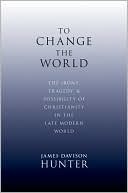More on this book
Community
Kindle Notes & Highlights
Read between
March 6 - May 28, 2022
The essence of culture is found in the hearts and minds of individuals—in what are typically called “values.” Values are, simply, moral preferences; inclinations toward or conscious attachment to what is good and right and true.
If culture is the accumulation of values and the choices made by individuals on the basis of these values, then how is it that American public culture today is so profoundly secular in its character?
Toward an Alternative Way Forward—Faithful Presence Within The groundwork having been laid, it is now time to turn directly to a possible alternative way of understanding the renewal of the church and its engagement with the culture. Over against the “Defensive Against,” “Relevance To” and “Purity From” paradigms, I would offer an alternative: “Faithful Presence Within.”
Presence and Place This has curious implications for our experience of presence and place. For millennia of human history, body and location were inextricably connected to experience.
The Central Argument of This Essay God, then, does not speak through empty abstractions or endless circumlocutions. Rather, in every instance, God’s word was enacted and enacted in a particular place and time in history. In all, presence and place mattered decisively. Nowhere is this more evident than in the incarnation.
This, in short, is the foundation of a theology of faithful presence. It can be summarized in two essential lessons for our time. The first is that incarnation is the only adequate reply to the challenges of dissolution; the erosion of trust between word and world and the problems that attend it. From this follows the second: it is the way the Word became incarnate in Jesus Christ and the purposes to which the
For the Christian, if there is a possibility for human flourishing in a world such as ours, it begins when God’s word of love becomes flesh in us, is embodied in us, is enacted through us and in doing so, a trust is forged between the word spoken and the reality to which it speaks; to the words we speak and the realities to which we, the church, point. In all, presence and place matter decisively. This summation is rather compressed and requires some unpacking.
Pursuit, identification, the offer of life through sacrificial love—this is what God’s faithful presence means. It is a quality of commitment that is active, not passive; intentional, not accidental; covenantal, not contractual. In the life of Christ we see how it entailed his complete attention. It was whole-hearted, not half-hearted; focused and purposeful, nothing desultory about it. His very name, Immanuel, signifies all of this—“God with us”—in our presence (Matt. 1:23).
At root, a theology of faithful presence begins with an acknowledgement of God’s faithful presence to us and that his call upon us is that we be faithfully present to him in return. This is the foundation, the logic, the paradigm. We are present to God as a worshipping community; fully present through participation in the sacraments, collective adoration, repentance, contemplation, intercession, devotion, and service. In that context, we are present to him through the disciplines of individual devotion—prayer, meditation, fasting, study, simplicity, and solitude, among others.
Conclusion The context is key. I have argued that in our world today, less and less ties word and world together other than will and power. In fact, the will to dominate, which I describe in Essay II, is only the most obvious expression of the dominance of will itself. In this situation, the will is ever seeking its own aspirations, fulfillment, and pleasure. Its appetites are limitless but they are made plausible all the same by a culture of apparent limitless consumer choice. But its commitments last only so long as its desires are satisfied. Against this, I have argued that there is a
...more
the unspoken rules, hidden conventions, and tacit standards of excellence that make up the landscape of prestige journalism, high-end academia, corporate board-rooms, and the arts establishment (among so many other fields) all vary.
Every bit as important are stories from individuals, organizations, and churches that are creatively practicing faithful presence, whether by instinct or by conscious design. For all that could be said, my purposes here are modest; to be suggestive rather than comprehensive.
In light of this, the cultural economy of contemporary Christianity has strongest, in the main, where cultural leverage is weakest—on the social periphery rather than the cultural center and in tastes that run to the lower-middle and middle brow rather than the high brow.
“the halls of power” in ways that are thoughtful and strategic, then, is simply ludicrous.
The reason, I argue in Essay II, is that world-changing implies power and the implicit theories of power that have long guided their exercise of power are also deeply problematic.


